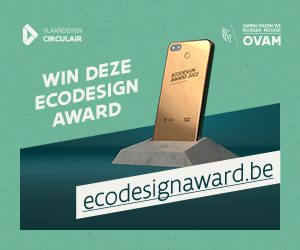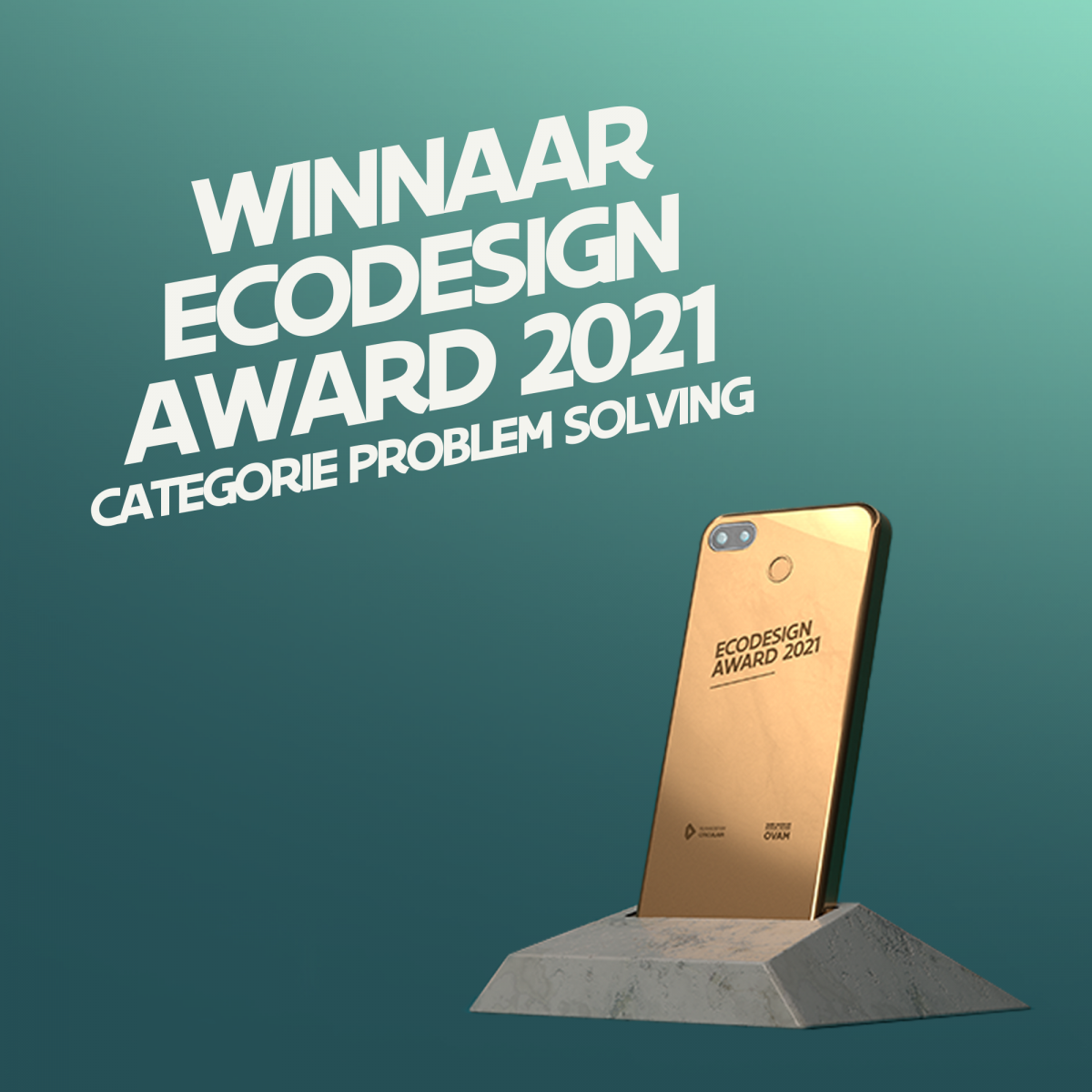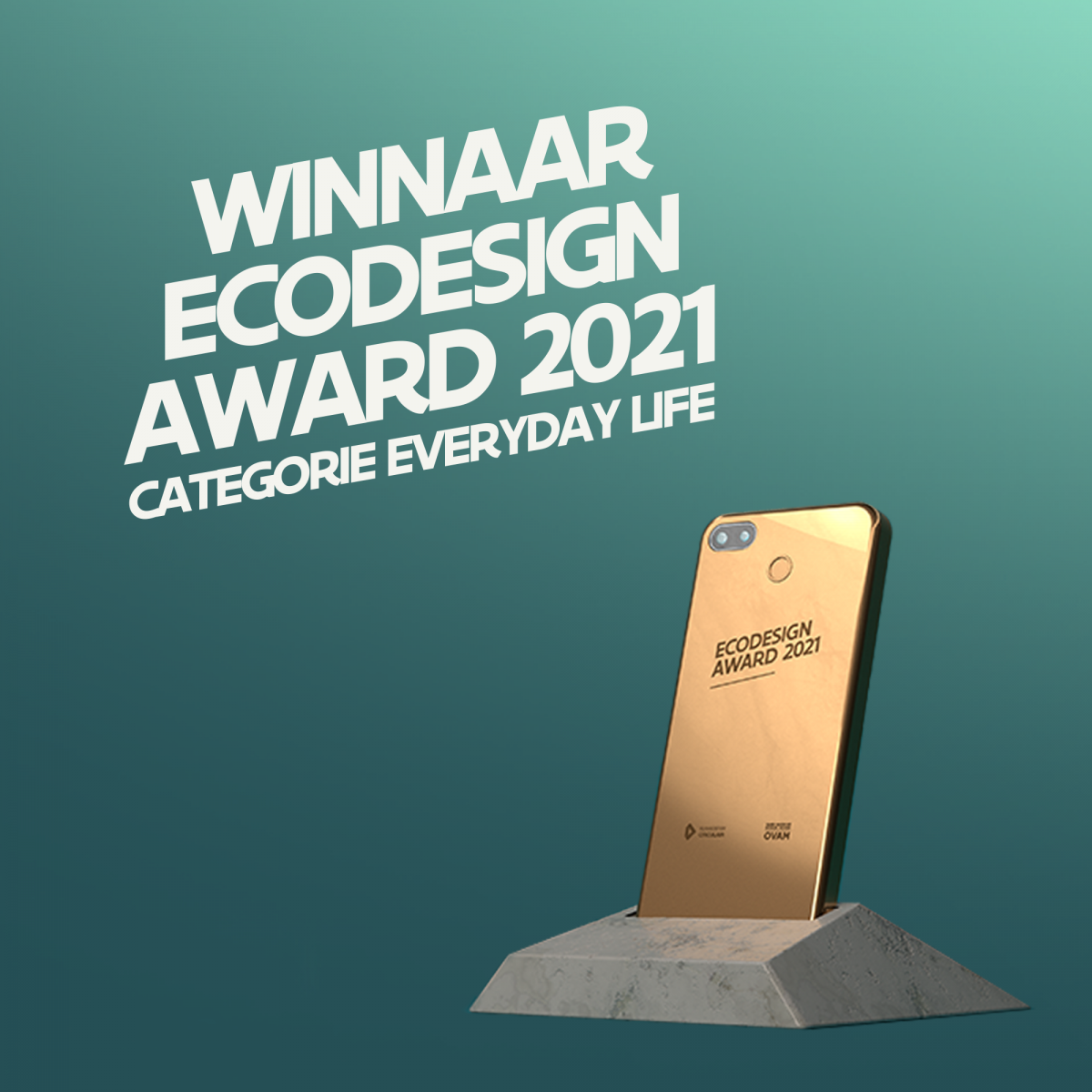Categories
How to participate?
Registration form
You can participate in the Ecodesign Award for Students 2022 through the online registration form until July 11, 2022. The registration form is in Dutch and must also be completed in Dutch.
Deadline
The deadline to submit is July 11, 2022. The awards will be announced in late August 2022.
Regulations
You can read the rules and regulations here (only in Dutch) and they contain the conditions for participation, information about the prize money and the criteria that the judges go over during the judging.
Winners Ecodesign Award 2021


GrO2
ARTHUR BOVEN
Productontwikkeling UAntwerpen
GrO2 stands for the responsible production of microalgae in an innovative photobioreactor. It makes use of surplus heat and space from industry. The photobioreactor is highly efficient due to low energy and water consumption during the cultivation of the microalgae. This is made possible by the unique heating system that constantly provides the entire photobioreactor with the optimal growth temperature. The photobioreactor will create valuable biomass by absorbing heat, CO2, minerals and light through a photosynthesis process. The biomass can then be used in numerous applications including pharmaceuticals, food and feed, cosmetics, bioplastics and biofuel.
HONOURABLE MENTION PROBLEM SOLVING
No Time To Waste
ISABEAU GODDÉ
Textielontwerp KASK
Textile manufacturers generate lint. This lint is essentially an accumulation of very short fibers and 12% of these fibers are lost on the factory floor. The No Time to Waste project set out to find new ways to process the lint. The result is the development of sustainable and perishable lint sheets, blocks and yarns. To demonstrate the applicability of this material in everyday life, a prototype modular folding screen was designed. The panels of the folding screen have an acoustic and insulating function.
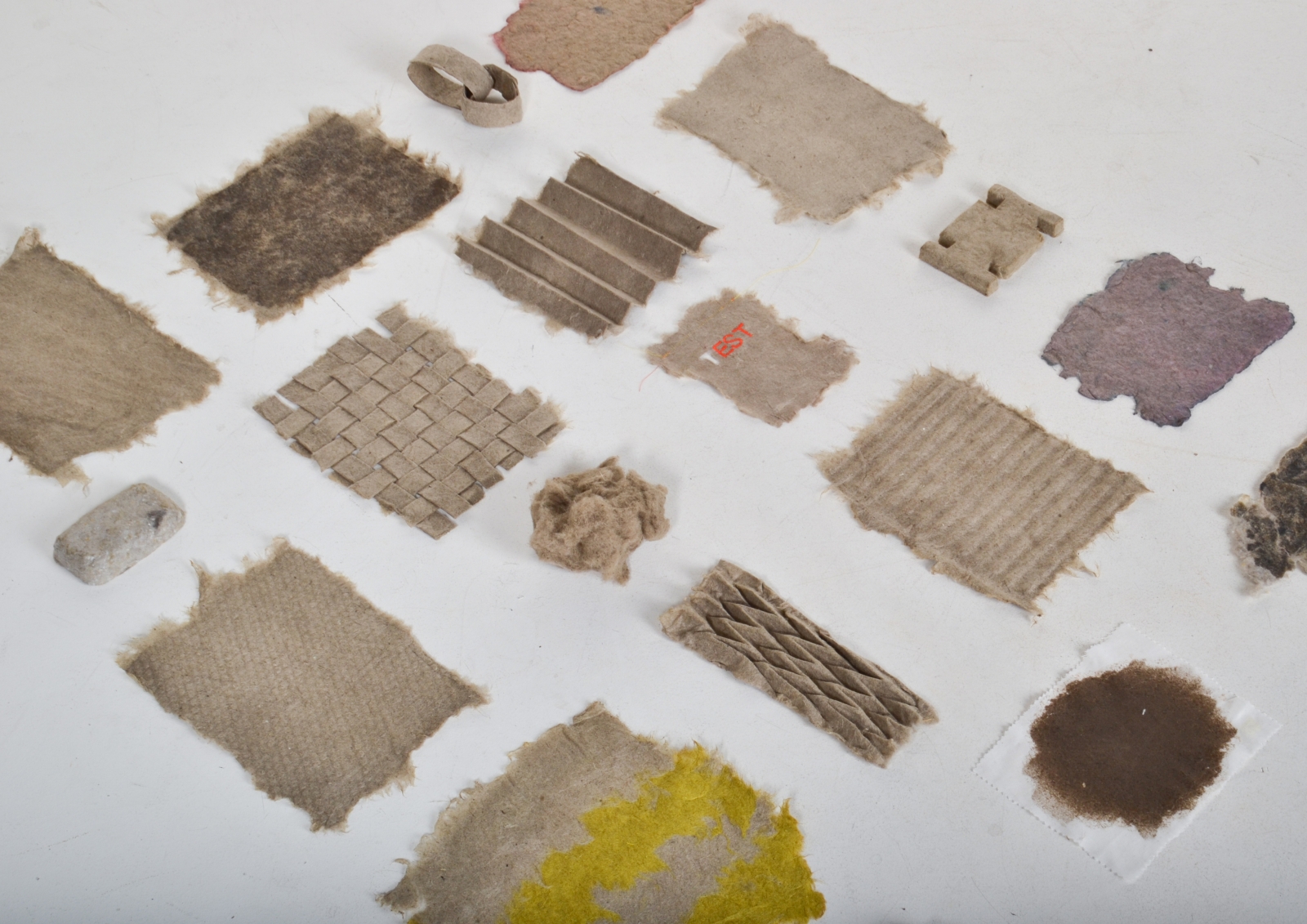
HONOURABLE MENTION PROBLEM SOLVING
Thermolight
BRAM VERMEULEN
Industrieel Ontwerpen UGent
23% of traffic fatalities are cyclists. This is often due to poor visibility in traffic. The most common causes of this are: empty bicycle batteries, malfunctioning dynamos in case of rain or simply forgetting to light the bicycle light. The Thermolight project aims to provide a solution to this problem. This bicycle light works on body heat and stays on even when stopped. Moreover, this is a sustainable choice, because recycling batteries becomes unnecessary. Thermolight consists of an upper plate for capturing body heat, Peltier elements, a lower plate as a cooling fan and an energy conversion module that drives an LED. The Peltier elements generate a voltage as soon as heat flows through them.
.png)


son-mat
ELIEN GIELEN
Productontwikkeling UAntwerpen
Son-mat consists of a combination of physical and digital tools that provide guidance on fermenting food products. It guides the user through the fermentation process and helps prepare healthy and safe fermentations. The mobile application provides inspiration for recipes and shows the various possibilities of fermentation. The user is guided in finding the right salt content and the ideal fermentation time. By mapping out the most important parameters affecting the safety and taste experience of the final product, not only are tasty and safe fermentations created, but the user can reproduce all creations again using the recorded values.
HONOURABLE MENTION EVERDAY LIFE
Bizù
Dorian Asscherick, Moses Ogundipe & Thijn Van den Bosch
Industrieel ProductOntwerpen Howest
A child costs a house, so the cliché goes. The Bizù project went in search of a solution to reduce the cost of baby shoes. From 6 to 18 months, a baby goes through 5 shoe sizes, which means that after only a few months it needs new slippers. In 12 months' time, 100 to 300 euros are spent in this way. Bizù are growing baby slippers that are suitable for different sizes. Bizù bridge the European sizes 18 to 22. They follow the growth of the feet and reduce the amount of wasted slippers.
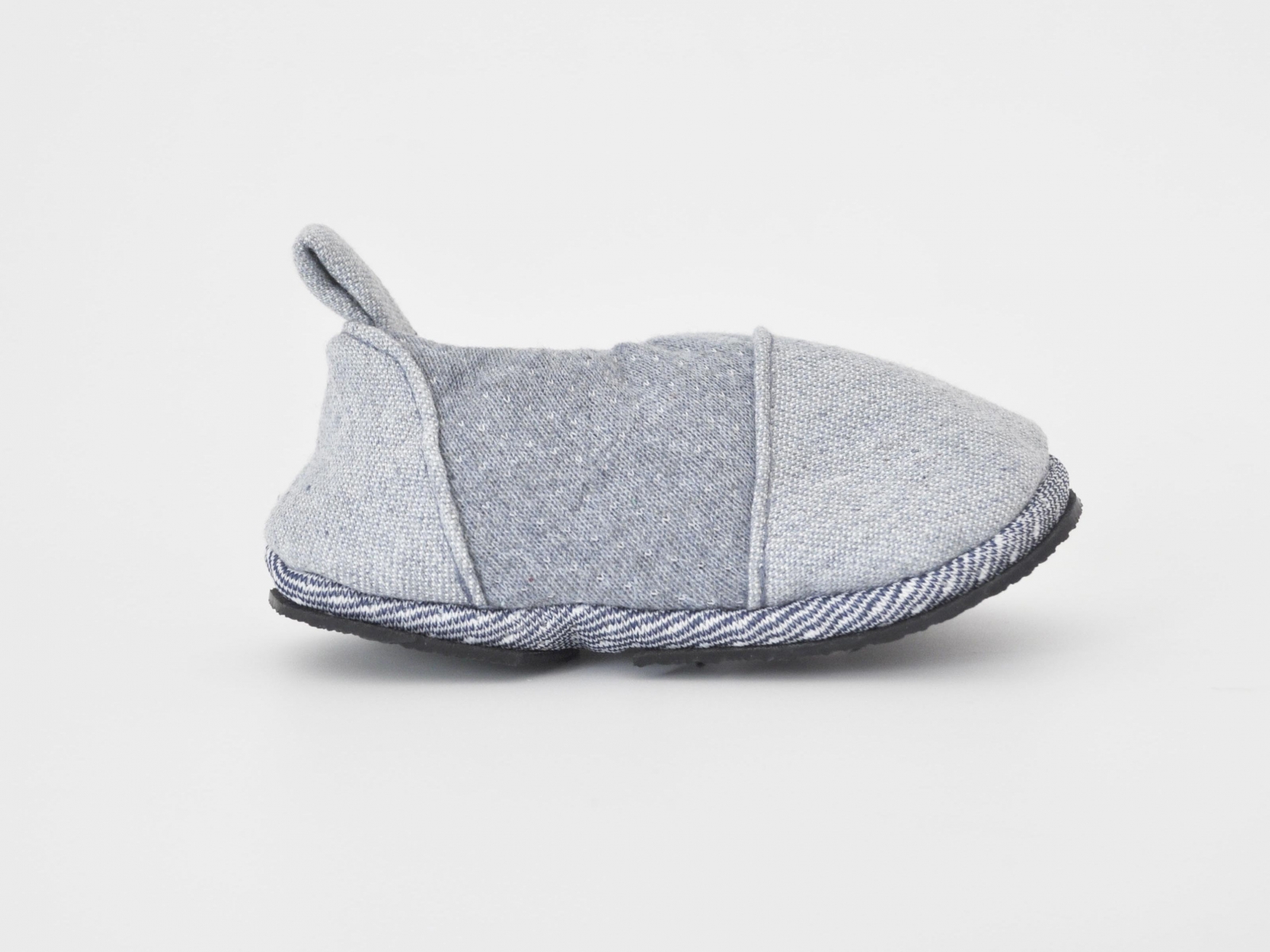
HONOURABLE MENTION EVERDAY LIFE
Groeiklas
ROBBE VERSCHUERE
Productdesign LUCA School of Arts Genk
The Grow Class is an ecosystem that serves as an active playground learning tool. The class consists of DIY vegetable garden modules, an educational curriculum and a community. Schools can build a vegetable garden by combining different modules. This allows each school to meet their own requirements and needs. The community is crucial for the sustainability of the project and consists of students, teachers and volunteers. Together they take care of the organization and maintenance of the garden. By interacting with the modules, the community, the modules and the curriculum form a circular ecosystem where active learning is central.
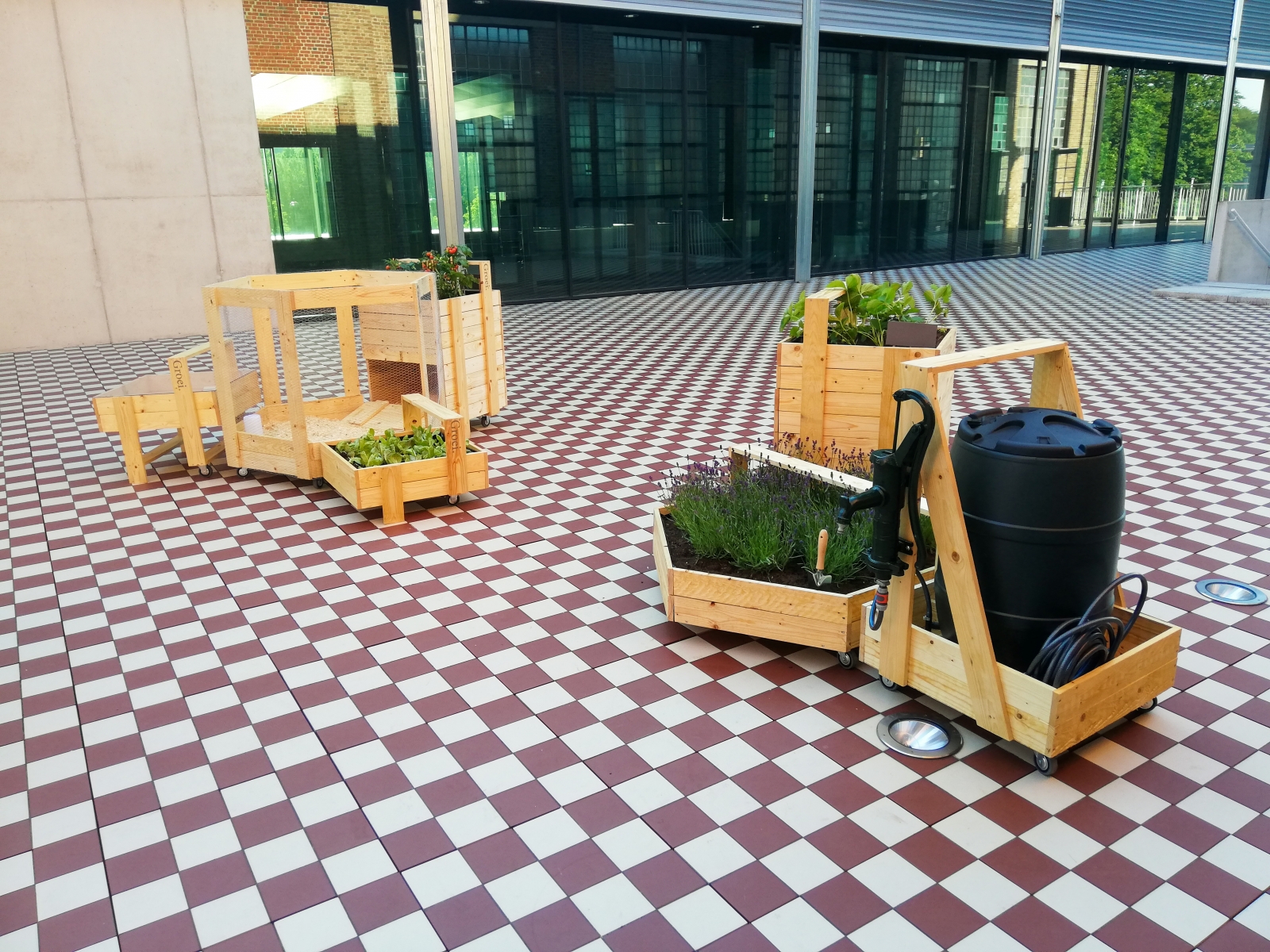
HONOURABLE MENTION EVERDAY LIFE
Smartaway
Andrei-Silviu Nitu
Industrieel ProductOntwerpen Howest
A deeper look at the food delivery market, with a focus on reusable packaging. These findings led to the design of Smartaway, a series of conceptual packaging. The interaction between packaging and user is enhanced by integrated IoT technology. An electronic system allows data on labels or 'tags' to be read using radio frequencies. The packaging is designed with sustainability and industry 4.0 in mind. That means optimization of transport, storage, and above all circularity.

